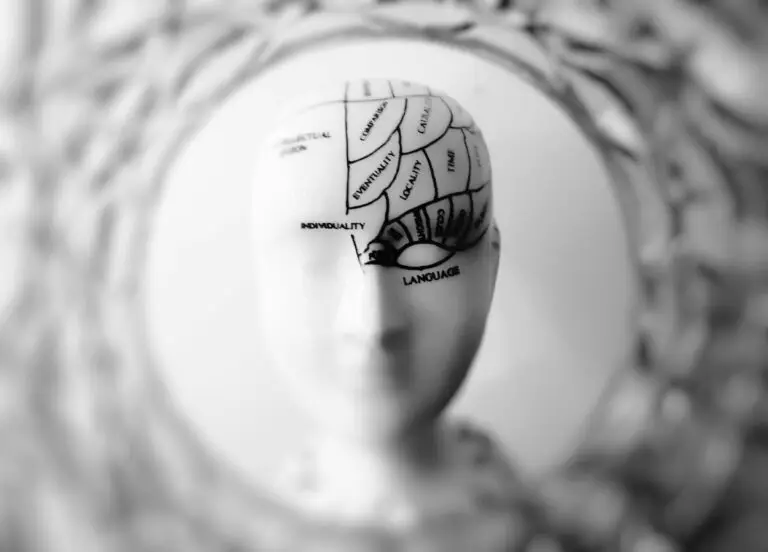10 Mind-Blowing Facts to Expand Your Perspective | FactBlaze
Life Lessons: 10 Fascinating Facts That Make You Think
Dive into 10 fascinating facts that will revolutionize your view of the world. From quirks in human perception to natural wonders, these tidbits will leave you pondering life’s big questions.
Expanding Your Mind, One Fact at a Time
Ready to give your brain a workout? We’ve dug deep into scientific research, historical archives, and the internet’s far corners to bring you 10 fascinating facts. These tidbits won’t just amaze you; they’ll make you think deeply about the world around us. So, fasten your seatbelts and get ready for a mind-bending ride!
1. Your Brain’s Timekeeping Tricks

Did you know your brain can warp time? It’s true! Our perception of time changes based on emotions, attention, and even body temperature.Here’s the kicker: time seems to slow down when we’re in danger or feeling intense emotions. Scientists call this “time dilation.” It’s likely an evolutionary trick that helps us process more information and react faster in high-stress situations.But there’s more! A study in “PLOS ONE” found that when body temperature drops by just 3 degrees Celsius, people estimate a 9-second interval to be about 11 seconds. Talk about chilling effects on time perception!
2. The Linguistic Limits of Color
Here’s a colorful fact: the number of colors you can perceive might depend on your language. Mind-blowing, right?Research shows that language influences our ability to distinguish colors. For example, the Himba people of Namibia have no distinct words for blue or green but several for different green shades. They can easily spot green variations that might look identical to English speakers.Check out this comparison:
| Language | Number of Basic Color Terms |
|---|---|
| English | 11 |
| Russian | 12 (separate terms for light and dark blue) |
| Himba | 5 |
| Pirahã | 2 |
Even among more familiar languages, differences exist. Russian speakers have separate words for light blue (goluboy) and dark blue (siniy), allowing quicker distinction between these shades than English speakers.
3.  : Your Brain’snocturnal Adventures
: Your Brain’snocturnal Adventures
Contrary to popular belief, your brain doesn’t shut down when you sleep. It’s actually throwing quite the party!During sleep, your brain consolidates memories, processes emotions, and even solves problems. But here’s the real shocker: your brain might be more active during certain sleep stages than when you’re awake! A study in “Science” found that during REM sleep (the dreaming stage), some brain parts show higher activity levels than during wakefulness. Researchers observed increased activity in areas linked to visual processing, emotion, and memory.Here’s a breakdown of brain activity during different sleep stages:
| Sleep Stage | Brain Activity Level |
|---|---|
| Awake | 100% |
| Stage 1 | 50-70% |
| Stage 2 | 60-70% |
| Stage 3 | 20-50% |
| REM | Up to 115% |
4. The Paradox of Choice

Here’s a fact that’ll make you rethink decision-making: more choices don’t always lead to better outcomes or increased happiness. Often, they cause decision paralysis and decreased satisfaction.Psychologist Barry Schwartz explored this “paradox of choice.” In one study, researchers set up a jam display in a grocery store. With 24 varieties, only 3% of customers bought jam. But with just 6 varieties, 30% made a purchase!This paradox extends to major life decisions too. A study of 401(k) plans found that for every 10 mutual funds added, participation rates dropped by 1.5-2%.Here’s a comparison of the paradox of choice in different scenarios:
| Scenario | Limited Options | Many Options |
|---|---|---|
| Jam Purchase | 30% bought | 3% bought |
| 401(k) Participation | Higher rates | Lower rates |
| Job Satisfaction | Higher | Lower |
5. The Power of Expectations: The Placebo Effect

The placebo effect shows how our expectations can impact our physical well-being. Placebos (fake treatments) can produce real physiological changes simply because a person believes they’ll work.Surprisingly, placebos can work even when people know they’re taking one! A study in “PLOS ONE” found that patients with irritable bowel syndrome experienced significant symptom relief from openly labeled placebos. Check out these placebo effect statistics:
| Condition | Placebo Response Rate |
|---|---|
| Depression | 30-40% |
| Pain | 35-40% |
| Ulcers | 30-40% |
| Asthma | Up to 70% |
6. The Immortal Jellyfish: Nature’s Benjamin Button

Meet the Turritopsis dohrnii, aka the immortal jellyfish. This tiny sea creature can revert to its juvenile stage after reaching maturity. It’s like hitting a reset button on aging!While they can still die from predation or disease, these jellyfish could potentially live forever by continually reverting to their younger form. Talk about the ultimate anti-aging secret!
7. The Sahara Desert: A Snowy Surprise

Think the Sahara is always hot? Think again! On December 19, 2016, and January 7, 2018, the world’s largest hot desert saw snowfall.The town of Ain Sefra in Algeria, known as the “Gateway to the Sahara,” received up to 16 inches of snow. While rare, it’s happened a handful of times over the past century. So, “when hell freezes over” might be less likely than snow in the Sahara!
8. The Incredible Shrinking Moon

Here’s a lunar surprise: our moon is shrinking! NASA scientists discovered that as the moon’s interior cools, it’s getting smaller. Over the last few hundred million years, it’s shrunk by about 150 feet in diameter.This shrinkage causes the moon’s surface to wrinkle, creating “thrust faults” where one crust section pushes up over an adjacent section. Next time you moongaze, remember you’re watching a slowly shrinking rock ball!
9. The Loudest Sound in Recorded History

Brace yourself for this ear-splitting fact! The loudest sound in recorded history occurred on August 27, 1883, when the volcanic island of Krakatoa in Indonesia erupted.The explosion ruptured sailors’ eardrums 40 miles away and was heard 3,000 miles away in Mauritius. The sound wave circled the globe three and a half times! It’s like setting off a sound in New York that could be heard in London.
10. The Incredible Journey of Monarch Butterflies

Prepare for a migration tale that puts your summer road trip to shame! Monarch butterflies travel up to 3,000 miles from the United States and Canada to central Mexico every year.What’s truly mind-blowing is that no single butterfly makes the entire round trip. It takes three to four generations to complete the full migration cycle. How they navigate this vast distance with pinpoint accuracy remains one of nature’s great mysteries.
Conclusion: The Never-Ending Journey of Discovery
These 10 fascinating facts remind us how complex and wondrous our world truly is. They challenge our assumptions, broaden our perspectives, and inspire us to keep questioning and exploring.So, the next time you feel stuck in a mental rut, remember these amazing tidbits. Let them reignite your curiosity and spark your sense of wonder. After all, in a world full of such incredible phenomena, who knows what amazing discoveries await just around the corner?Keep questioning, keep exploring, and never stop being amazed by the world around you. It’s not just about knowing facts—it’s about using that knowledge to see the world in new and exciting ways. Now go forth and share your newfound wisdom!
FAQs
- Q: How can our perception of time change?
A: Emotions, attention, and body temperature can alter time perception. Danger or intense emotions can make time seem slower, while a lower body temperature can make it feel longer. - Q: Does language affect color perception?
Yes, research shows that the language we speak can influence our ability to distinguish between different colors. - Q: Is our brain more active during sleep than when we’re awake?
A: During REM sleep, some brain parts can show higher activity levels than during wakefulness, particularly in areas linked to visual processing, emotion, and memory. - Q: Why can more choices lead to less satisfaction?
A: The “paradox of choice” occurs because an abundance of options can cause decision paralysis and increased regret or doubt about the choice made. - Q: Can placebos work if people know they’re taking one?
A: Yes! Studies show that openly labeled placebos can still produce significant effects in some conditions. - Q: What’s special about the immortal jellyfish?
A: The Turritopsis dohrnii can revert to its juvenile stage after reaching maturity, potentially living forever. - Q: Has it really snowed in the Sahara Desert?
A: Yes, the Sahara Desert has experienced snowfall, most recently in 2016 and 2018. - Q: Is the moon really shrinking?
Yes, NASA scientists have discovered that the moon is slowly shrinking as its interior cools.
Your support can make a significant difference in our progress and innovation! via Venmo admin@factblaze.com or https://factblaze.com/ Click Here to buy me a coffee!








